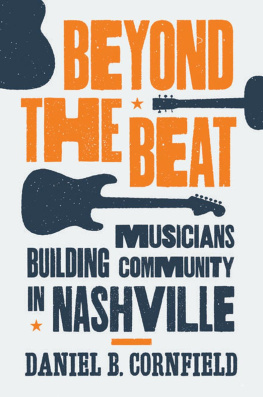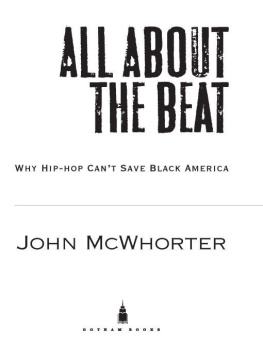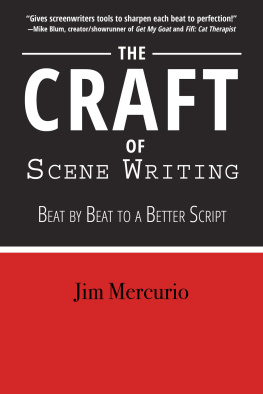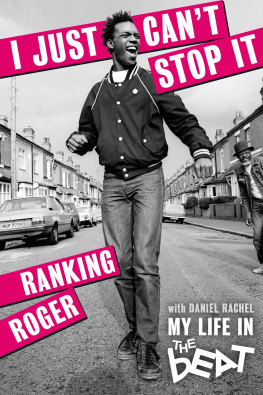Copyright 2015 by Princeton University Press
Published by Princeton University Press, 41 William Street, Princeton, New Jersey 08540
In the United Kingdom: Princeton University Press, 6 Oxford Street, Woodstock, Oxfordshire OX20 1TW
press.princeton.edu
All Rights Reserved
ISBN 978-0-691-16073-3
Library of Congress Control Number: 2015941945
British Library Cataloging-in-Publication Data is available
This book has been composed in Sabon Next LT Std and Adobe Caslon Pro
Printed on acid-free paper
Printed in the United States of America
10 9 8 7 6 5 4 3 2 1
Preface and Acknowledgments
A s champions of artistic freedom, artist activists promote artistic and intellectual expression and cultural pluralism in a democratic society. Expressive occupations, such as musicians, writers, visual artists, actors, critics, journalists, dancers, poets, filmmakers, academics, curators, and bloggers, constitute a creative and critical force that encourages societal self-reflection and inspires humanistic social transformation. Peer occupational communities provide the requisite social spaces for promoting individual artistry, peer mentoring, professional development, networking, solidarity, and advocacy for the whole occupation. In large-scale democratic societies, where bureaucratic economic and political institutions may compel conformity, activist members of expressive occupations serve as a countervailing force by sustaining their peer communities and artistic and intellectual expression.
Beyond the Beat focuses on the artist activists themselves. Oriented toward promoting their peers artistry and livelihoods, artist activists enact multiple roles to strengthen their peer communities, including the roles of artist-producer, social entrepreneur, and arts trade union reformer. Sociologically, the set of artist activist roles is a repertoire of individual and collective action for building and sustaining inclusive, peer communities of expressive occupations. This book is a sociological examination of how artist activists fashion their activist roles to strengthen their peer communities.
In Nashville, musicians are actively building an inclusive peer community in several genres of popular music. This new community of independent artists has emerged in the decades-long musician migration to Nashville alongside of and from the ranks of the established musician community in country music. Throughout the migration, as the level of musician concentration in Nashville increased to the highest levels of U.S. music-recording cities by the mid-2000s, local artist-producers, social entrepreneurs, and arts trade union reformers have continuously arisen to create a diverse peer community of independent artists. These artist activists, as visionary artist peers, are creating the requisite social spaces for new generations of their peers to express their diverse social identities in a widening range of musical genres. The array of Nashville-produced musical genres now includes country, gospel, Americana, urban, neo-soul, jazz, Latin jazz, pop, punk, and rock.
Sustaining inclusive peer communities is not a foregone conclusion, and the emergent Nashville musician community has yet to fully crystallize with an overarching organization. Rather, it is sustained by a loosely coupled set of micro-organizational initiatives undertaken by artist activists and closely aligned impresarios. Beyond the inherent instability of these initiatives, the new Nashville musician community emerges as the music scene enters a local and national, risky era of non-union, entrepreneurial music production in which intellectual property is contested terrain; and an era of artist self-promotion in dynamic, but evasive, niche markets of music-downloading consumers.
Artist activism also occurs in a local and national context of identity politics. Heightened awareness of ones social identity has accompanied the social movements for civil, womens, and LGBT rights of the late twentieth and early twenty-first centuries, and the movement for immigrant rights stimulated by the large post-1990 wave of immigration to the United States. In Nashville, a cumulating sequence of the womens, LGBT, and immigrant rights movements has unfolded with the initial momentum generated by Nashvilles pioneering, non-violent civil rights movement of the early 1960s. The cumulating sequence of social movements, global immigration, and the musician migration to Nashville has afforded artist activists the opportunity to build an inclusive peer community that expresses a range of social identities in an expanding selection of musical genres.
In Beyond the Beat, I develop a new sociological theory of artist activism that addresses how artists of any expressive occupation envision, assume, and enact their activist roles in strengthening their peer communities. The evidence for the theory is based on seventy-five in-depth interviews my research team and I conducted with diverse Nashville music professionals of varying career stages and hyphenated occupations. The empirical focus of the book is on sixteen detailed profiles of artist activists enacting an array of activist roles. They are presented in ascending order of the extent of collective action embodied in their roles, and in the approximate historical sequence of their appearance in the post-1980 musician migration to Nashville. The presentation of artist activist profiles begins with the pioneering transformative generation of enterprising artists who broke from corporate commercial music production in the 1980s and went on to mentor and produce new generations of diverse self-promoting, indie artists. Next are the social entrepreneurs who arose subsequently to create social spaces for artist development in clubs, schools, and artist development enterprises. The book culminates in the contested election of 2008 for the presidency of Nashville Local 257 of the American Federation of Musicians among two generations of arts trade union reformers. The theory of artist activism attributes variations in the blend of individual and collective action envisioned and taken by artist activists to their subjective orientations toward success, audience, risk, and career inspiration, and to their career-biographical pathways to becoming artist activists.
Beyond the Beat presents an artist-centered approach to building an inclusive artist peer community. As Nashville musicians respond to the beat of their migration history, they take an approach for building a peer community for a new era. It is for an entrepreneurial era of art-making and artist self-promotion in which the artist increasingly assumes the risks of making and distributing art; and for an era of identity politics and musical genre diversity. It is an approach for re-creating artist peer communities, re-socializing and minimizing the risks of making art, and for encouraging cultural pluralism in a democratic society.
* * *
I am greatly indebted to my extraordinary colleagues Bill Ivey and Steven Tepper, director and associate director of the Curb Center for Art, Enterprise, and Public Policy at Vanderbilt University when I started the research for Beyond the Beat. Bill and Steven inspired and helped shape and launch this project by sharing with me their vast storehouse of knowledge about arts policy, artist communities, and the Nashville music scene, their networks, and their tremendous enthusiasm for the project. At the Curb Center, they cultivated a community of affiliated campus colleagues whose regular meetings in the Creativity Workshop provided the constructively critical forum for vetting our research projects and honing our research skills. I am also very grateful to Bill and Steven for the generous financial support of the Curb Center for my research.











